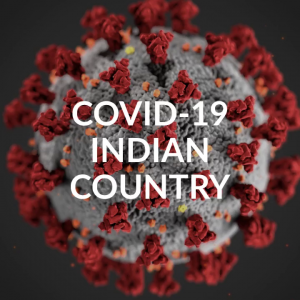
The Indian Health Service has updated its coronavirus data, showing results as of January 17, 2021.
According to the data, 167,262 tests have returned positive for COVID-19, the disease caused by the coronavirus. That represents an increase of 0.2 percent from the 166,902 cases previously reported by the IHS.
Altogether, 1,827,089 coronavirus tests have been administered within the IHS through January 17, the data shows. That marks an increase of 0.1 percent from the day prior.
Since mid-October of 2020, the IHS has been providing additional information about the spread of the coronavirus within the system. The cumulative percent positive column shows the historical COVID-19 infection rate, meaning the number of tests that have returned positive since the onset of the pandemic.
Based on the cumulative percent positive, the highest rates have been seen in three areas. Two of them include the state of Arizona, indicating a disproportionate toll of COVID-19 in the state:
- Navajo Area — 16.8 percent
- Phoenix Area — 14.5 percent
- Oklahoma City Area — 13.3 percent
The 7-day rolling average positivity column offers a more contemporary look at the impact of the coronavirus. The data shows where COVID-19 cases have been increasing recently.
Based on the 7-day rolling average positivity, five areas have seen dramatic growth in COVID-19. They follow:
- Tucson Area – 23.4 percent
- Phoenix Area — 20.2 percent
- Oklahoma City Area — 19.4 percent
- Navajo Area — 17.5 percent
- California Area — 15.9 percent
Three of the regions include the state of Arizona.
Overall, 9.9 percent of IHS tests have been positive since the onset of the pandemic, the data shows. Meanwhile, the 7-day average has somewhat leveled off after increasing steadily during the holiday season. It now stands at 12.1 percent.
The data, however, is incomplete. While 100 percent of facilities run directly by the IHS are reporting data, only 33 percent of tribally managed facilities and 44 percent of urban Indian organizations are doing the same, the agency has told Indianz.Com.
COVID-19 Cases by IHS Area
Data are reported from IHS, tribal, and urban Indian organization facilities, though reporting by tribal and urban programs is voluntary. Data reflect cases reported to the IHS through 11:59 pm on January 17, 2021.
|
IHS Area
|
Tested
|
Positive
|
Negative
|
Cumulative
percent
positive *
|
7-day rolling
average
positivity *
|
|---|---|---|---|---|---|
| Alaska | 448,398 | 10,095 | 375,600 | 2.6% | 2.9% |
| Albuquerque | 81,269 | 7,312 | 55,229 | 11.7% | 14.8% |
| Bemidji | 122,001 | 9,146 | 109,860 | 7.7% | 6.2% |
| Billings | 86,509 | 7,053 | 75,937 | 8.5% | 6.8% |
| California | 58,154 | 5,758 | 48,861 | 10.5% | 15.9% |
| Great Plains | 124,612 | 13,315 | 110,727 | 10.7% | 8.0% |
| Nashville | 58,470 | 4,857 | 52,401 | 8.5% | 12.6% |
| Navajo | 208,668 | 28,547 | 141,416 | 16.8% | 17.5% |
| Oklahoma City | 391,149 | 51,413 | 334,306 | 13.3% | 19.4% |
| Phoenix | 147,013 | 21,223 | 124,836 | 14.5% | 20.2% |
| Portland | 79,716 | 6,168 | 72,771 | 7.8% | 3.9% |
| Tucson | 21,130 | 2,375 | 18,602 | 11.3% | 23.4% |
| TOTAL | 1,827,089 | 167,262 | 1,520,546 | 9.9% | 12.1% |
* Cumulative percent positive and 7-day rolling average positivity are updated three days per week.
